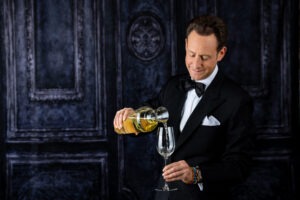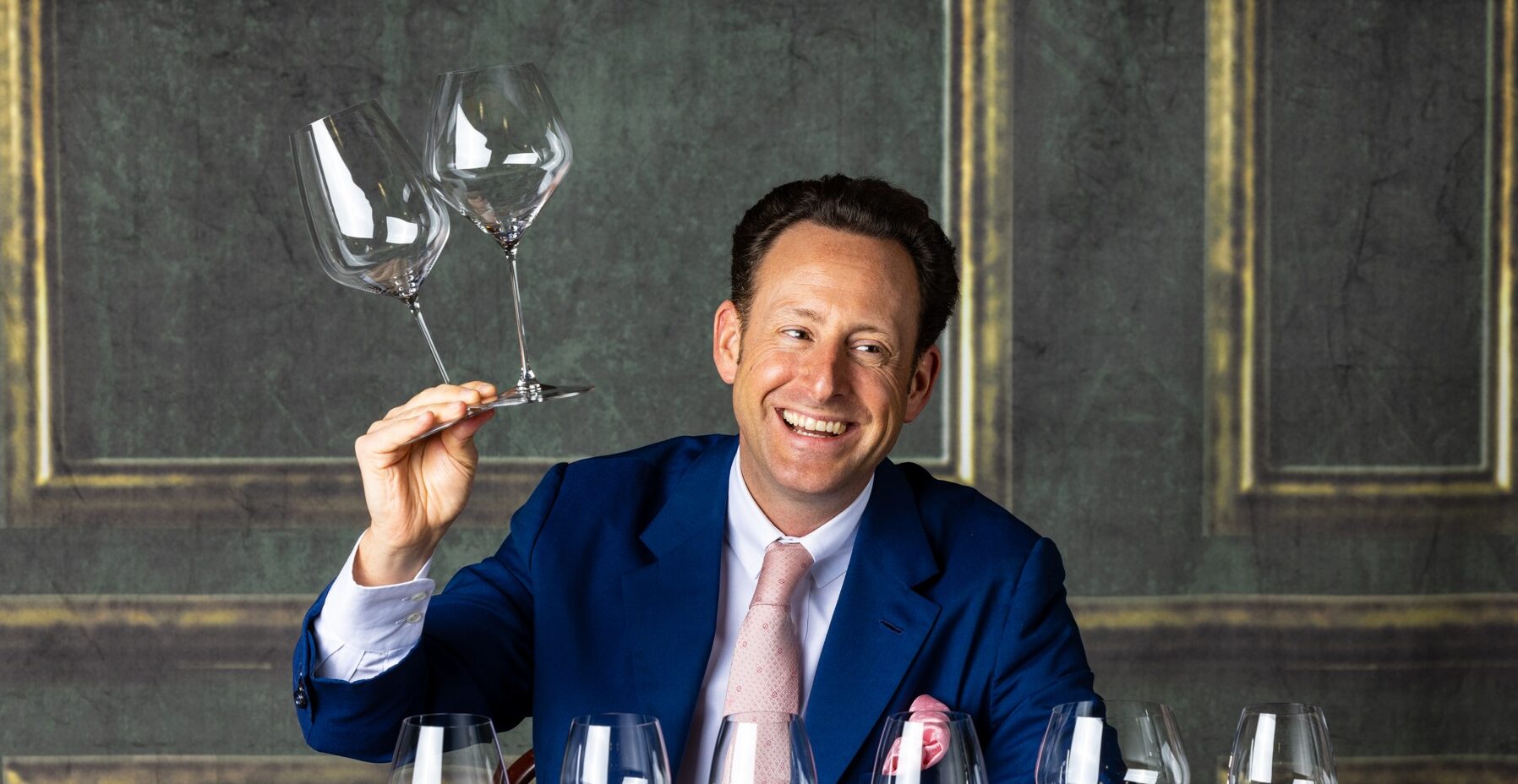Haute Living Magazine
MAXIMILIAN RIEDEL STANDS IN THE MIDDLE OF A PASTURE in Austria, laughing as he sweeps the phone’s camera past a cow just five feet away. The refreshingly gregarious 46-year-old might not immediately strike you as the CEO of the world’s top producer of specialized wineglasses, but he drops into that mode immediately, sharing the secrets to his family’s longevity and describing which glass everyone must own (the proper glass for your favorite variety). His down-to-earth business approach has drawn in countless new consumers, and he’s got 320,000 enthusiastic followers of his “second home,” his personal Instagram page, to prove it.
His good nature belies the fact that he carries the weight of 11 generations on his shoulders, running the family business, founded in 1756, for the last 10 years. “As the head of the business, my greatest achievement has been growth. Growth in many ways, not only in sales, but also in the brand’s reputation and in communication of the brand. We are a small family business and the market leader, and we’re very proud of that. And my job is to keep it that way.”
“My father [Georg Josef Riedel] did a very smart thing when I was able to join the family business. We lacked management in North America, so he sent me 7,000 miles away. And for nearly 15 years, I ran the American operation, which became our number one market worldwide.” Riedel credits the mutual respect between his father and himself for the success. “I think that the most important ingredient [in a family business] is respect for each other.”
Riedel learned firsthand from two of the 11 generations. He shared, “I was a big fan of my grandfather [Claus Josef Riedel] and how he approached business. I’m an even bigger fan of my father and how he conducts business. They gave me enthusiasm and allowed me to shine.”

“We’re celebrating the 50th anniversary of our original stemware collection, Sommeliers. These were the designs of my grandfather. The entire glass industry came forward with his glasses without decoration, with an egg-shaped bowl, a long stem, and a base. He was the first in history to come forward with such a design language, which is 100 percent Bauhaus [Design Principle]—form follows function, less is more.”
He explained how his grandfather created this innovation by working with successful sommeliers who told him what they needed. When his father joined the business, he expanded upon that innovation after consulting with wine industry leaders such as Robert Mondavi and Angelo Gaja. They taught him that the most important factor in winemaking was grape variety, and his grape variety-specific Riedel “O” Series was born. “He studied fruit, grape varieties, and winemaking. He learned so much and realized that every fruit and grape variety could communicate a sense of it so much better if you started developing glasses that brought it forward. They all have their own DNA. This was the beginning, and it’s our success story.”
His father continued designing and creating products such as “Wine Wings,” a flat-bottomed glass. “The upper third of the glass is very similar to all other glasses; only the lower part of the glass is different, so new. And he said that his taste for wine has changed over time. He is not looking anymore for sweetness. He’s looking for minerality for the fruit, and this new shape really boosts the minerality in wine.” The variety-specific wine glass choices continued to grow.
For example, winemakers told them they needed a glass specifically for New World Pinot Noir. “So, we did it; it’s been on the market now for 20 years—a great success for us.”
Riedel’s advice for wine lovers? “If people are serious about wine, they should definitely consider drinking it from a Riedel glass. It makes such a difference. Sometimes, people don’t like a wine, and they blame the wrong reasons. Temperature is a good reason, but they never blame the wine glass; people should know that it can negatively impact your wine experience. When I think about beautiful moments with my family, it doesn’t matter at what price point the wine is;
if we serve it at the right temperature in the right glass, I’m super happy.”
Regarding family, Riedel considers maintaining the business for the next generation his greatest challenge. “I need to pass on the torch and make the next generation feel part of the family and want to enter the business.” He laughed, “Because otherwise, I’m the biggest loser in 11 generations.”



